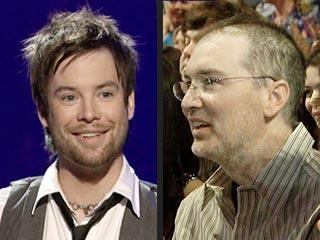Idol Winner’s Brother Adam Cook Loses Fight with Brain Cancer

Adam Cook, lawyer and older brother of American Idol winner David Cook, lost his battle with brain cancer yesterday. The 37 year old was originally diagnosed with a brain tumor in 1998. He did well until last year when the cancer recurred and had spread to his spine. Despite aggressive chemotherapy, Adam’s cancer eventually became unresponsive and he chose hospice care at home.
Although this is a sad story, it demonstrates how far treatment for brain cancer has come. Advances have been made in both diagnosis and treatment.
The field of brain imaging has brought us new and improved methods for visualizing the anatomy and physical characteristics of brain tumors. For example, functional magnetic resonance imaging (fMRI) can now be used to map the function of the area surrounding a tumor. This, in turn, helps the neurosurgeon design surgical approaches that avoid areas of critical brain function.
Geneticists are now better able to characterization of the genetic makeup of brain tumor cells which will lead to treatments more specific to genetic type.
Advances have also been made in new and improved methods in surgery, radiation and chemotherapy and in various combinations of these treatments. One of the major problems with brain cancer treatment is that the brain is partially protected by something called the blood-brain barrier that restricts the passage of various chemical substances and microscopic objects (such as bacteria) between the blood stream and the nerve tissue itself, while still allowing the passage of substances essential to its metabolic function (like oxygen and sugar). Many drugs are not able to pass through the BBB. One new group of therapies has been developed which combine surgery and a drug delivery system that bypasses this obstacle. Implants with cancer fighting drugs in them are actually placed in the brain near the tumor site to kill any remaining tumor cells.
New ways of focusing radiation beams allow the delivery of more radiation to the tumor and less radiation to the surrounding normal brain. The use of computerized robotic radiation delivery systems make these advances possible.
For more information
www.abta.org/
www.braintumor.org/GeneralMenu/
www.abc2.org/index.shtml



























0 comments